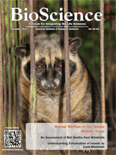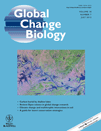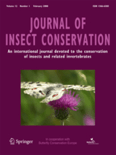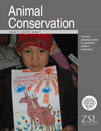
BIOSCIENCE
Scope & Guideline
Unlocking innovative research for a sustainable future.
Introduction
Aims and Scopes
- Biodiversity and Conservation:
The journal focuses on the study of biodiversity, including conservation strategies for endangered species and ecosystems, and the role of genetic diversity in resilience against environmental changes. - Ecological Research and Management:
BIOSCIENCE publishes research on ecological processes and management practices, including habitat restoration, invasive species management, and the impacts of climate change on ecosystems. - Sustainability and Human Interaction:
The journal explores the intersection of human activities and ecological health, emphasizing sustainable practices in agriculture, urban development, and resource management. - Innovative Methodologies:
The journal highlights the use of innovative research methodologies, including citizen science, artificial intelligence, and environmental DNA techniques, to enhance data collection and analysis in ecological studies. - Education and Inclusivity in Science:
BIOSCIENCE promotes educational initiatives and inclusivity in the biological sciences, advocating for diverse participation in ecological research and education.
Trending and Emerging
- Climate Change Adaptation and Resilience:
Research on how ecosystems adapt to climate change is gaining traction, with studies focusing on resilience mechanisms and strategies for mitigating impacts on biodiversity. - Community and Citizen Science:
There is a growing emphasis on community engagement and citizen science as vital components of biodiversity monitoring and conservation efforts, highlighting the role of public participation in ecological research. - Intersection of Health and Biodiversity:
Emerging research explores the connections between biodiversity, ecosystem health, and human well-being, particularly in the context of zoonotic diseases and environmental health. - Technological Integration in Ecology:
The use of advanced technologies such as eDNA, remote sensing, and AI in ecological research is trending, facilitating more efficient data collection and analysis. - Social Justice in Conservation:
An increasing focus on social equity and justice in conservation practices is evident, as the journal addresses the need for inclusive approaches that consider marginalized communities in environmental decision-making.
Declining or Waning
- Traditional Taxonomic Studies:
Research focused solely on traditional taxonomy has seen a decline, as the field increasingly embraces interdisciplinary approaches that combine genetics, ecology, and conservation. - Purely Descriptive Ecological Studies:
There is a waning interest in studies that primarily describe ecological phenomena without providing management implications or conservation strategies, as the journal shifts towards more applied research. - Single-Species Focus in Conservation:
The emphasis on single-species conservation approaches is diminishing in favor of holistic ecosystem management strategies that consider species interactions and ecosystem services.
Similar Journals

Tropical Life Sciences Research
Unveiling Innovations in Tropical Life SciencesTropical Life Sciences Research, published by PENERBIT UNIVERSITI SAINS MALAYSIA, is an esteemed open-access journal dedicated to the realms of Agricultural and Biological Sciences, Biochemistry, Genetics, and Molecular Biology, and Medicine. Since its inception in 2006, this journal has established itself as a significant platform for disseminating high-quality research findings that contribute to the understanding of tropical biodiversity and health-related issues. With its innovative approach, Tropical Life Sciences Research has garnered an impressive impact factor, reflecting its influence in the academic community; it is ranked Q2 in Agricultural and Biological Sciences and Q3 in both Biochemistry and Medicine categories as of 2023. Researchers and professionals can access a wealth of knowledge through this journal, whose content spans from 2009 to 2024, making it a vital resource for students and experts alike interested in advancing the science of tropical ecosystems and health. The journal also stands out for its comprehensive Scopus rankings, indicating its relevance and quality in the competitive academic landscape.

GLOBAL CHANGE BIOLOGY
Connecting Science to Policy in a Changing WorldGLOBAL CHANGE BIOLOGY, published by Wiley, is a leading journal dedicated to advancing the scientific understanding of the relationships between biological systems and global environmental changes. With an impressive impact factor placing it in the Q1 category across multiple disciplines—including Ecology, Environmental Chemistry, and Global and Planetary Change—this journal is essential for researchers, professionals, and students aiming to stay at the forefront of this dynamic field. The journal has a rich history since its inception in 1995, continually providing a platform for high-quality research that informs policy and management practices worldwide. Although it is not open access, the journal remains a valuable resource for those committed to exploring the complexities of ecological and environmental change. With a Scopus ranking of #3 in Global and Planetary Change and #6 in both Ecology and Environmental Chemistry, GLOBAL CHANGE BIOLOGY continues to shape the dialogue on the pressing environmental challenges of our time.

JOURNAL OF INSECT CONSERVATION
Advancing Insect Conservation for a Sustainable FutureJOURNAL OF INSECT CONSERVATION, published by SPRINGER in Switzerland, is a leading peer-reviewed journal that focuses on the preservation and study of insect biodiversity and ecology. With an ISSN of 1366-638X and E-ISSN 1572-9753, this journal represents a vital resource for researchers and practitioners in the fields of Animal Science, Ecology, and Insect Science. The journal consistently ranks among the top quartiles, achieving Q1 status in Animal Science and Zoology and Q2 in other pertinent categories in 2023, according to Scopus rankings. This reflects its significant influence in the academic community, with a solid impact factor that highlights its importance in advancing the discourse on insect conservation. Though not an open access journal, it provides critical insights and innovative research findings from 1997 to 2024, making it an essential platform for those involved in the conservation of insect species and their habitats. As a scholarly resource, the JOURNAL OF INSECT CONSERVATION is dedicated to fostering knowledge dissemination and inspiring future research in pressing environmental issues.

ANIMAL CONSERVATION
Advancing Knowledge to Safeguard Our Planet's Biodiversity.Animal Conservation is a prestigious journal that serves as a vital platform for the dissemination of research dedicated to the preservation of wildlife and habitats. Published by Wiley, this journal has established a significant presence in the fields of Ecology and Nature and Landscape Conservation, holding a distinguished Q1 category ranking for both in 2023. With an impressive Scopus rank of #25 in the realm of environmental science, it caters to a global audience keen on understanding and addressing pressing conservation issues. The journal provides researchers, professionals, and students with high-quality, peer-reviewed articles that explore innovative methods and strategies in animal conservation. With its continuous publication since 1998, encompassing a comprehensive range of topics, Animal Conservation is indispensable for anyone aiming to make impactful contributions to the field of ecology and conservation biology.

REVISTA DE BIOLOGIA MARINA Y OCEANOGRAFIA
Diving Deep into Oceanographic DiscoveriesREVISTA DE BIOLOGIA MARINA Y OCEANOGRAFIA is a prominent academic journal dedicated to the fields of marine biology and oceanography, published by the Faculty of Marine Sciences and Natural Resources at Universidad de Valparaíso, Chile. Since its inception in 1996, this journal has been a vital platform for disseminating research findings and advancements in aquatic sciences, covering a breadth of topics relevant to the marine environment. With its current impact positioned within the Q4 quartile of both Aquatic Science and Oceanography categories in 2023, the journal serves as an essential resource for scholars, practitioners, and students alike, aiming to enhance their understanding of marine ecosystems. While the journal does not provide open access options, it continues to contribute valuable insights, helping to foster a deeper appreciation for oceanographic science and marine biodiversity. Located in the scenic city of Viña del Mar, Chile, this publication invites manuscripts that push the boundaries of knowledge and stimulate discourse within the marine sciences community, thereby promoting sustainable management and conservation of oceanic resources.

REVISTA CHILENA DE HISTORIA NATURAL
Bridging Science and Sustainability in ChileREVISTA CHILENA DE HISTORIA NATURAL, published by the SOCIETAD BIOLOGIA CHILE, is an esteemed open-access journal dedicated to the fields of Agricultural and Biological Sciences as well as Environmental Science. With an ISSN of 0716-078X and an E-ISSN of 0717-6317, the journal has maintained an impactful presence since its inception in 2000, offering unrestricted access to vital research that influences the biodiversity and ecological initiatives in the region and beyond. Positioned in the Q2 quartile for Agricultural and Biological Sciences and Q3 for Environmental Science as of 2023, REVISTA CHILENA DE HISTORIA NATURAL exemplifies its commitment to high-quality and influential research, evidenced by its respectable ranking in Scopus—89th percentile for Agricultural and Biological Sciences and 131st in Environmental Science. Operated out of Santiago, Chile, and covering a wide range of topics with a converging publication timeline from 2002 to 2024, this journal serves as a crucial resource for researchers, professionals, and students looking to deepen their understanding of natural history and its implications for future ecological preservation.

TROPICAL ECOLOGY
Shaping the Future of Tropical Ecosystem ResearchTropical Ecology is a distinguished journal published by SpringerNature that has been at the forefront of advancing the field of ecology since its inception. With a focus on tropical ecosystems, it addresses critical areas such as conservation biology, systematics, and environmental science. The journal is indexed within leading databases and enjoys a respectable impact factor, ranking in the second quartile (Q2) in Ecology as well as in Plant Science, and third quartile (Q3) in Ecology, Evolution, Behavior and Systematics for 2023. Its insightful research contributions place it among the top-tier publications in Agricultural and Biological Sciences, specifically in rankings such as #185 in Plant Science and #178 in Ecology. While it currently operates under subscription access, it remains an essential resource for researchers, professionals, and students interested in the dynamics of tropical environments, fostering a greater understanding of ecological principles and practices that are pivotal for sustainable development. The journal operates with continuous publication from 1976 to 2024, ensuring timely dissemination of impactful research findings that contribute to the global body of knowledge.

Hidrobiologica
Connecting researchers to the pulse of our waters.Hidrobiologica is a pivotal academic journal dedicated to the field of aquatic sciences and ecology, published by UNIV AUTONOMA METROPOLITANA-IZTAPALAPA in Mexico. With a commitment to fostering research from diverse ecosystems, this journal encourages the dissemination of knowledge spanning aquatic environments, ecological interactions, and marine biodiversity. Although classified in the Q4 category across various relevant fields such as Aquatic Science and Oceanography, Hidrobiologica is focused on increasing visibility and engagement among scholars by providing a platform for innovative research that addresses contemporary ecological challenges. The journal's address reflects its deep-rooted commitment to local and regional aquatic research, yet it aims to resonate with a global audience. Researchers, professionals, and students alike will find value in the journal's scope, which spans from 2007 to 2024, making it a valuable resource for understanding advancements in aquatic studies. While not an open-access journal, it continues to be a significant contributor to the academic dialogue in aquatic sciences.

BIODIVERSITY AND CONSERVATION
Empowering researchers to tackle biodiversity challenges.Biodiversity and Conservation is a leading peer-reviewed journal published by Springer, dedicated to advancing the understanding of biodiversity and the critical aspects of conservation biology. With an impact factor that consistently places it in the Q1 category across multiple fields including Ecology, Evolution, and Nature and Landscape Conservation, this journal serves as a vital resource for researchers, professionals, and students who aim to address the pressing challenges of biodiversity loss and ecosystem management. Established in 1992, the journal has successfully created a platform for high-quality research and innovative approaches, facilitating the dissemination of knowledge that informs conservation practices globally. With a strong ranking in Scopus, it highlights the importance of rigorous scientific inquiry in the preservation of our natural world. Subscribers can access a wealth of articles that encompass a broad range of topics pertinent to both theoretical and practical aspects of biodiversity, encouraging an interdisciplinary dialogue among the diverse fields of environmental science and conservation.

PACIFIC CONSERVATION BIOLOGY
Advancing ecological insights for the Pacific's unique biodiversity.PACIFIC CONSERVATION BIOLOGY is an esteemed academic journal published by CSIRO PUBLISHING, dedicated to advancing research in the fields of ecology and nature conservation. With a strong focus on the unique challenges and biodiversity of the Pacific region, this journal serves as a crucial platform for researchers, conservationists, and students alike to disseminate high-quality, impactful findings. Operating from Australia, it has become a significant resource since its inception in 1993, navigating through nearly three decades of vital scholarly communication. Ranked in the Q2 category for both Ecology and Nature and Landscape Conservation as of 2023, PACIFIC CONSERVATION BIOLOGY maintains rigorous standards, as reflected in its successful Scopus rankings. The journal plays a pivotal role in addressing pressing ecological issues and fostering innovative conservation strategies, making it an essential reference for anyone involved in environmental science. Access options for the journal facilitate widespread distribution of knowledge, supporting the mission to promote informed decision-making in conservation practices.